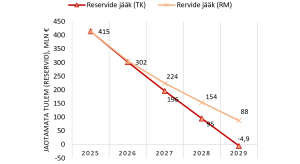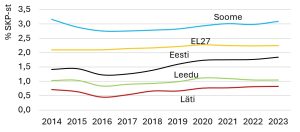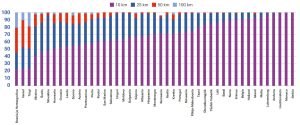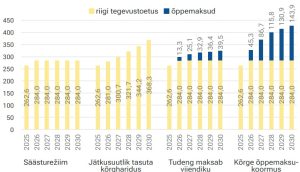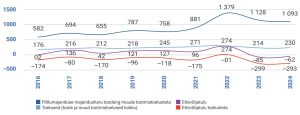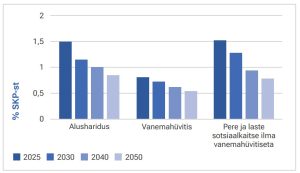According to the Foresight Centre’s new study “Pension Size and Purchasing Power by 2050”, a multi-pillar pension system makes pensions more resilient to demographic shocks, spreading risks between the labour market and capital markets.
News
Hiring private tutors is widespread in Estonia. According to the study by the Foresight Centre, “The Use of Private Tutors in Estonia”, the need for private tutoring is greatest in Russian-speaking families, where private tutors are hired more than twice as often as in Estonian-speaking families.
The expenses of the Estonian Health Insurance Fund significantly exceed its revenues, and the accumulated reserves will be depleted in the next five years. Other European countries in the same situation have cut healthcare services and increased people’s co-payments. According to the Foresight Centre’s new short report “Other countries’ experiences in managing healthcare budget deficits”, both solutions have worsened public health and deepened inequality.
The Lithuanian economy is growing faster than the Estonian economy, and the Lithuanian government has been bolder in stimulating the economy with tax reliefs. According to the Foresight Centre’s new short report “Estonian Economic Competitiveness in Comparison with Latvia, Lithuania and Finland”, knowledge-intensiveness is considered to be Estonia’s strength, while Lithuania is able to generate substantial revenue even with simpler services.
Estonian communications services have good coverage and are fast by international standards, and mobile internet is affordable and very competitive internationally. However, cable connection prices are high compared to neighbouring countries, especially for very fast connections, according to the Foresight Centre’s recent report “Trends and Competitiveness in the Electronic Communications Sector”.
Foreign investors are showing growing interest in the competencies of Estonian companies and universities in the field of valorisation of rare earth elements, which creates a good opportunity for Estonia to become a European centre of excellence, according to the Competitiveness Expert Council in its report “Status and Prospects of the Estonian Economy 2025” submitted to the Riigikogu.
Over the past decade, gross domestic product and average salaries have grown twice as fast as public funding for higher education. The Foresight Centre finds in its new short report that if the state’s contribution to higher education will no longer increase after 2026, the only alternative is the introduction of tuition fees.
The increasing cost of technology, rise in wages and increasing use of services have the biggest impact on the growing healthcare costs in Estonia. According to the Foresight Centre’s new short report ‘Reasons for the Rapid Growth in Healthcare Costs in Estonia’, the share of healthcare costs in GDP will likely continue to increase if these trends continue.
According to the Foresight Centre’s new short report, Estonian agricultural producers are operating at a loss, despite investments and growth in productivity. Rising costs and a low level of value added to raw materials reduce competitiveness.
In its new short report “The impact of population ageing and low birth rate on long-term state revenue and expenditure”, the Foresight Centre notes that the lower than projected birth rate will reduce government spending on family policy and education, but in the long term, it will mean up to 1.3 billion euros less in tax revenue.

 An independent think tank at the Riigikogu
An independent think tank at the Riigikogu 

